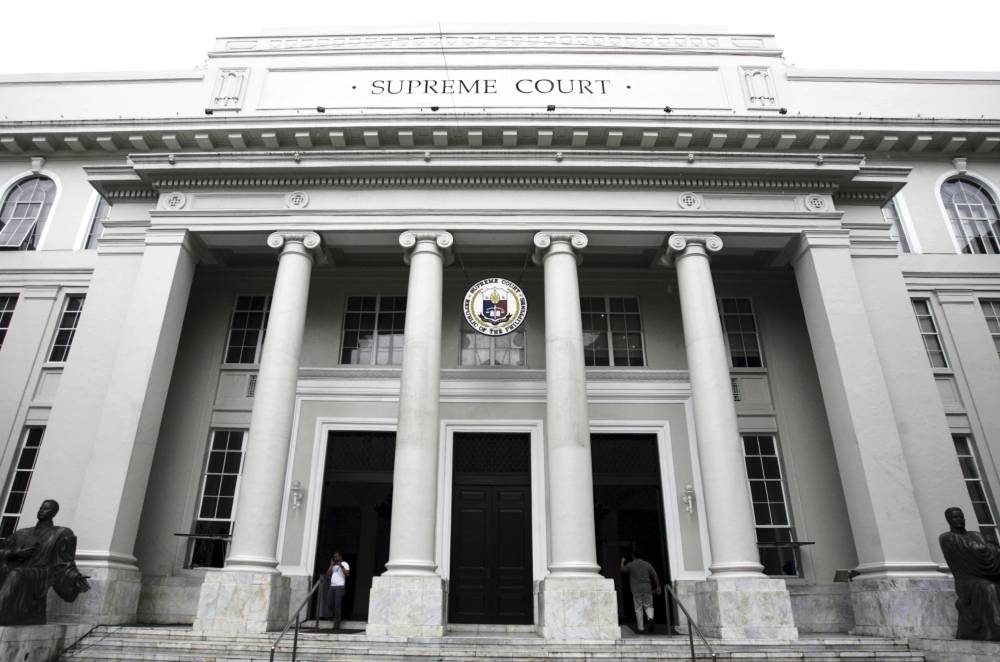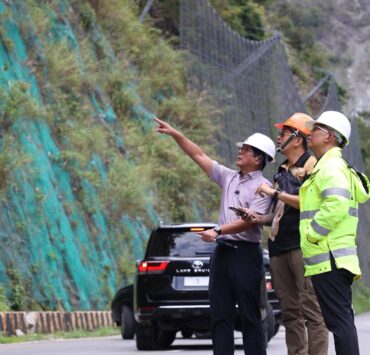SC: Ombudsman can modify previous rulings

The Supreme Court (SC) has reiterated that the Office of the Ombudsman is not obliged to “blindly implement” the rulings of its predecessor, as it upheld an Ombudsman decision clearing a former customs official and his children of charges of ill-gotten wealth.
In a 14-page ruling, the SC’s Second Division dismissed the petition of the Department of Finance (DOF) challenging the Ombudsman’s reversal of a directive to file a forfeiture case against Rafael Mendoza, former chief customs operations officer at the Bureau of Customs (BOC).
“Far from being a mere rubber stamp, the Ombudsman wields the power to revoke or modify past rulings or resolutions and may also order a review of a complaint, provided it remains within the bounds of the law,” the high tribunal said in the decision penned by retired Associate Justice Mario Lopez.
Not proportionate
The decision in G.R. No. 270948 was promulgated on April 2 but made public only recently.
The case dates back to 2011 when the DOF’s Revenue Integrity Protection Service (DOF-RIPS) filed a complaint before the Ombudsman charging Mendoza with violation of Republic Act No. 1379, or the Forfeiture of Unlawfully Acquired Property Law.
The DOF claimed that Mendoza, who had worked at the BOC since 1979, as well as his family accumulated properties that were not proportionate to their lawful earnings.
The agency said he failed to declare in his statement of assets, liabilities and net worth (SALN) several properties, such as expensive vehicles registered under his name, those of his wife and his children.
Based on their analysis, the DOF-RIPS said they saw a steady increase in Mendoza’s real estate acquisitions and in his cash on hand from P30,000 in 1997 to P9 million in 2009.
His 2009 SALN, the department added, showed that his declared assets totaled P29.3 million.
DOF-RIPS then accused him of “amassing unexplained wealth disproportionate to his legitimate income, and making misrepresentations and misleading statements in his SALNs to conceal his illicit acquisitions.”
In his defense, Mendoza denied the allegations, saying that some of the properties were declared as improvements acquired through legal means, and that he had additional sources of income like rental properties, a passenger jeepney business and jewelry trading, as well as “unexpected financial gains” from insurance claims and winnings from horse racing.
In 2013, the Ombudsman found probable cause to indict him and his children for violation of RA 1379.
It also ordered the filing of a petition before the Regional Trial Court (RTC) to initiate forfeiture proceedings for the recovery of their alleged unexplained wealth.
Not arbitrary
In 2022, however, the Ombudsman issued an order saying there was insufficient evidence to warrant the filing of a petition for forfeiture.
It cited the “change in the leadership” in the Ombudsman that required the review of certain cases.
In elevating the case to the high court, the DOF-RIPS argued that the Ombudsman committed grave abuse of discretion, asserting that the latter was duty-bound to initiate the forfeiture proceedings before the RTC since it had found probable cause to indict Mendoza and his children.
But, according to the Supreme Court, the Ombudsman’s move to review and reinvestigate Mendoza’s case is not arbitrary but a “rightful exercise of its power to revoke, modify, or overturn the rulings of its predecessor.”
It pointed out that a case review allows the Ombudsman to execute an effective prosecutorial method to make sure that all assets disproportionate to the respondent’s lawful income are properly forfeited in favor of the State.
“Thus, if, upon review, the incumbent Ombudsman determines that the facts and circumstances relied upon by its predecessor do not sufficiently establish probable cause, ‘it is not only within its authority but also its duty to dismiss the case,” the Supreme Court said.
After all, it added, hastily filing cases without sufficient evidence not only exposes the government to unnecessary procedural problems but also results in the waste of resources on a case “that is likely to fail in court.”

















